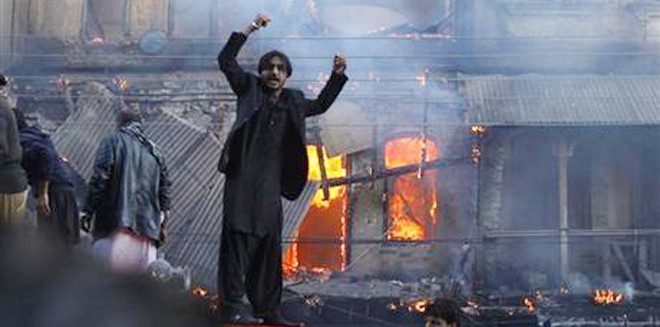

Last year, my younger brother’s dear friend and his doctor father were gunned down in cold blood on their way to school. Investigations would later establish that the target was the father and that his sole crime was that he belonged to the minority Shia sect. The perpetrators did not know or simply did not care that this doctor was known around the country for treating poor patients free of cost irrespective of their religion, caste or creed.
Though incidents like this have become a matter of routine in today’s Pakistan, this particular one shattered the cocoon of safety that I usually felt and stirred a flurry of questions in my head. What has led to this turmoil? Why are innocent people and children killed? Will there ever be tolerance?
I took these questions to my grandfather who promised an alternative narrative, if I accompanied him on his weekly tours to his citrus orchards in Quaidabad (which is where the Province of Punjab borders the tribal areas of Lakki Marwat).
Though I had visited the place before, this time he took me to see the wider area and also to meet with different workers. I met some Hindus, quite a few Christians and, of course, Muslims. I was struck to note the harmony.
On our way back, my grandfather explained to me how his own family had been uprooted due to religious violence at the time of the Partition (of India) and that he thought the best way to fight this intolerance was through personal examples set by individuals who then collectively form the society.
He explained that the cohesion he was able to inculcate in this area, despite its diversity, had benefited the community as a whole.
The optimism I gathered through this interaction has never left me since.
I still can’t understand that if one rural population can be so unconcerned with religious beliefs over hard work, why can’t we check sectarian and religious violence that has taken thousands of lives through targeted attacks across Pakistan.
Today, our society likes to dictate a preference for religion and even one for the sub-sect within it. Our courts ordered to erase the title of ‘Muslim’ from the grave of Dr Abdul Salam, the country’s sole Nobel Laureate, because he was an Ahmadi and the state does not recognise Ahmadis as Muslims.
This attitude has also robbed Sindh of its middle class due to the exodus of Hindus since 1950.
I guess the problem with our society is that it lacks a collective resolve to adequately fight and help the situation by incorporating and demonstrating tolerance on individual levels. This has pushed me to explore the diversity of cultures, religions and ways of the world.